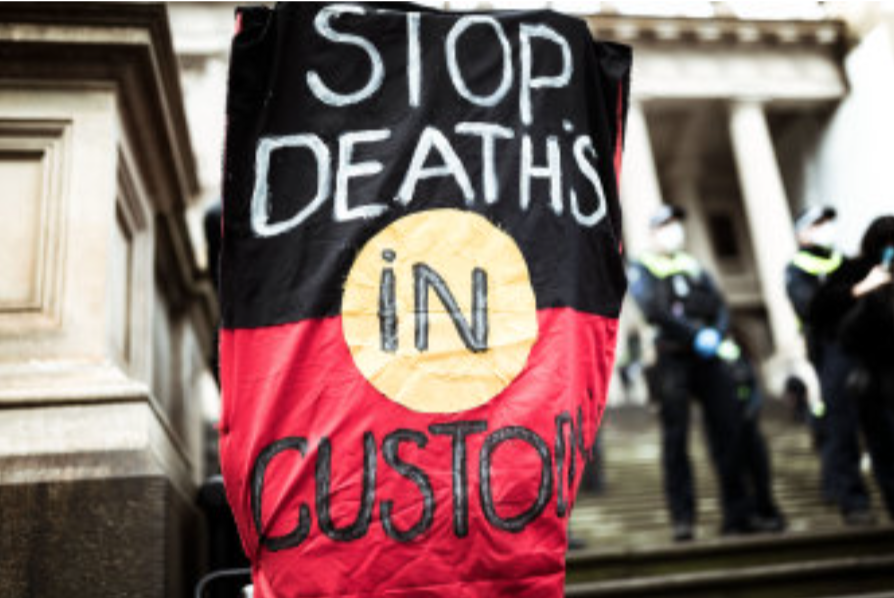What Is Happening Inside Prisons?
Written By Priya Rajesh
The racialised prison complex is an ongoing apparatus continuing the dated logic of
elimination. Angela Davis finds the emergence of ‘reservation’ and ‘mission’ systems which
imposed physical violence and mandated high mortality rates reintroduced through prisons.
Since the 1991 Royal Commission into Aboriginal Deaths in Custody (RCIADIC), more than
470 Aboriginal and Torres Strait Islander peoples have died in custody . In
2020–21 alone there were 66 deaths in prison custody and 16 in police custody or custody-
related operations. The Australian Bureau of Statistics show that at 3% of the Australian
population and 29% of the prison population, Indigenous Australians are the most
incarcerated people on Earth .
The Australian Institute of Criminology stated deaths in custody were ‘due to natural causes’
This reasoning was widely contested after the death of David
Dungay Jr, a Dunghutti man who was captured on CCTV footage saying ‘I can’t breathe’ 12
times while five officers restrained and sedated him facing down, contradicting a ‘natural
cause’. This deception and lack of accountability re-traumatises victims
and communities. The Deathscapes project, maps racialized deaths in custody, seeking to
‘humanise what has been dehumanised’ by the media and government reports.
Governments have not adequately implemented the Royal Commission’s 339
recommendations, nor the recommendations from the Australian Law Reform Commission’s
Pathways to Justice inquiry, the Don Dale royal commission and other coronial
investigations.
The roundabout nature of social justice continues when governments dismiss their
responsibility to enforce reforms and the media feeds misinformation to the general public
generating racial stereotypes. Despite, the rising death toll, Herald Sun columnist Andrew
Bolt claims the numbers of deaths in custody are ‘wildly exaggerated’. Amongst the RCIADIC’s 339
unfulfilled recommendations, Recommendation 208proposed the media form relationships with Indigenous
organisations to prevent misrepresentation of Aboriginal and Torres Strait Islander peoples affairs
Growing public concerns particularly following the Black Lives Matter protests in Australia,
the ongoing over-representation of First Nations people in the criminal justice system could
no longer be suppressed by the media. Aboriginal and Torres Strait Islander peoples deaths in
custody is not a conversation about pointing fingers. This conversation requires being
accountable, standing together and creating meaningful reform.

